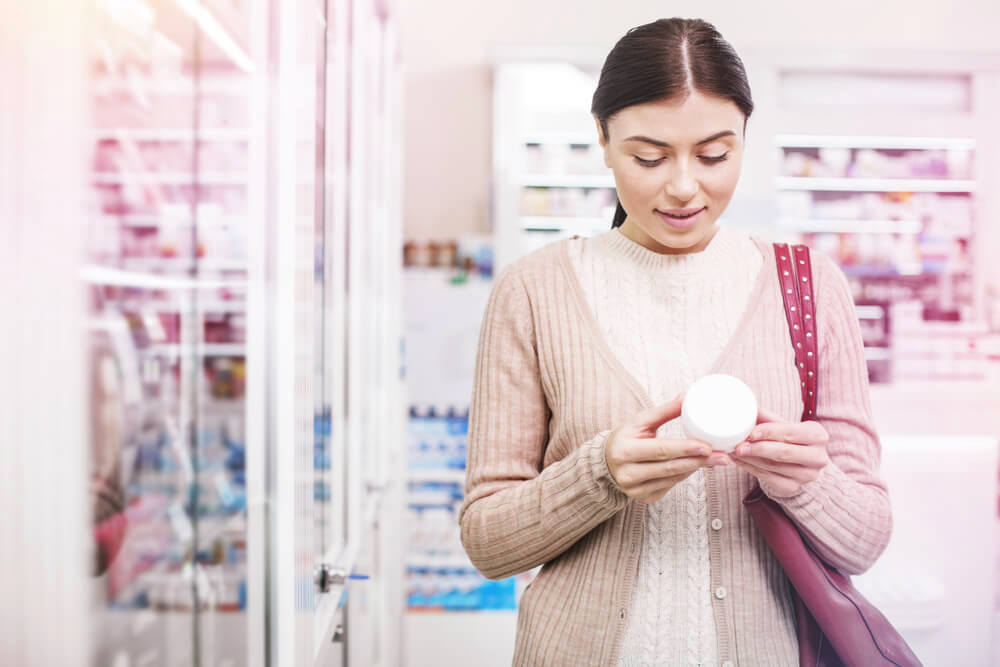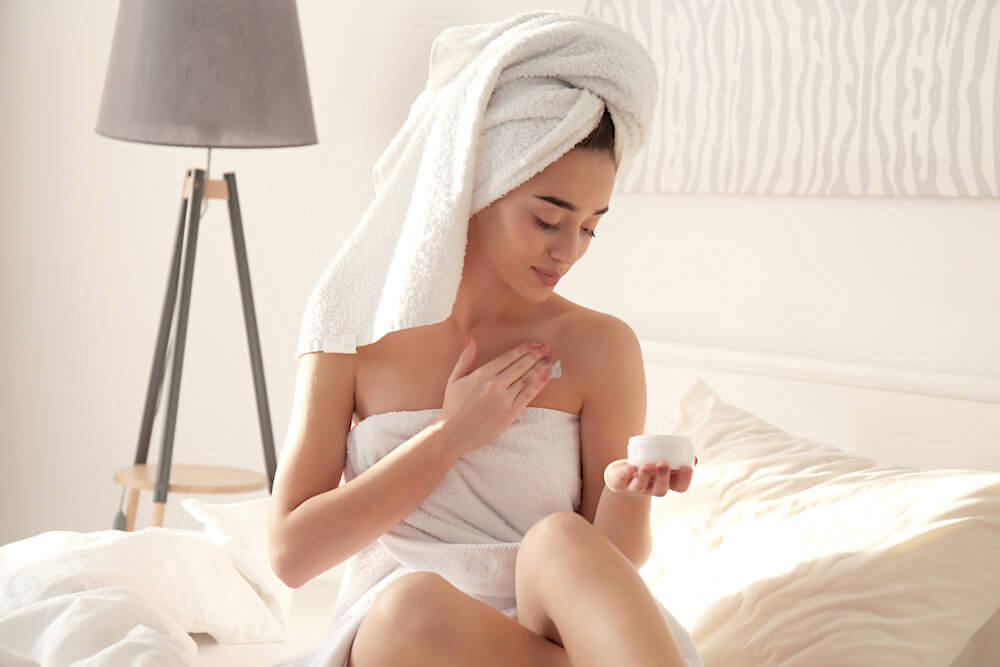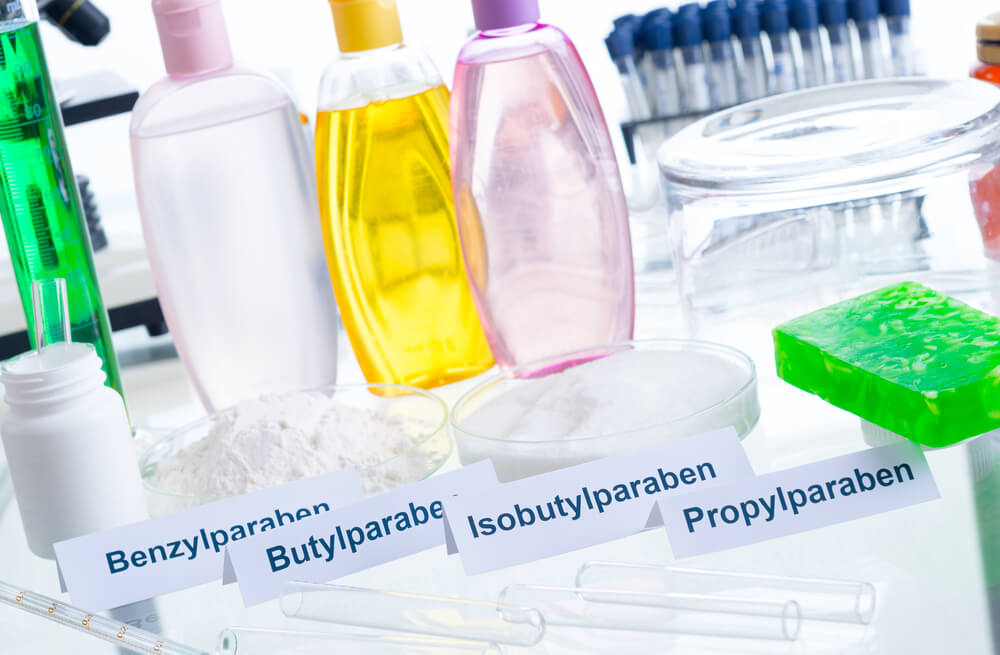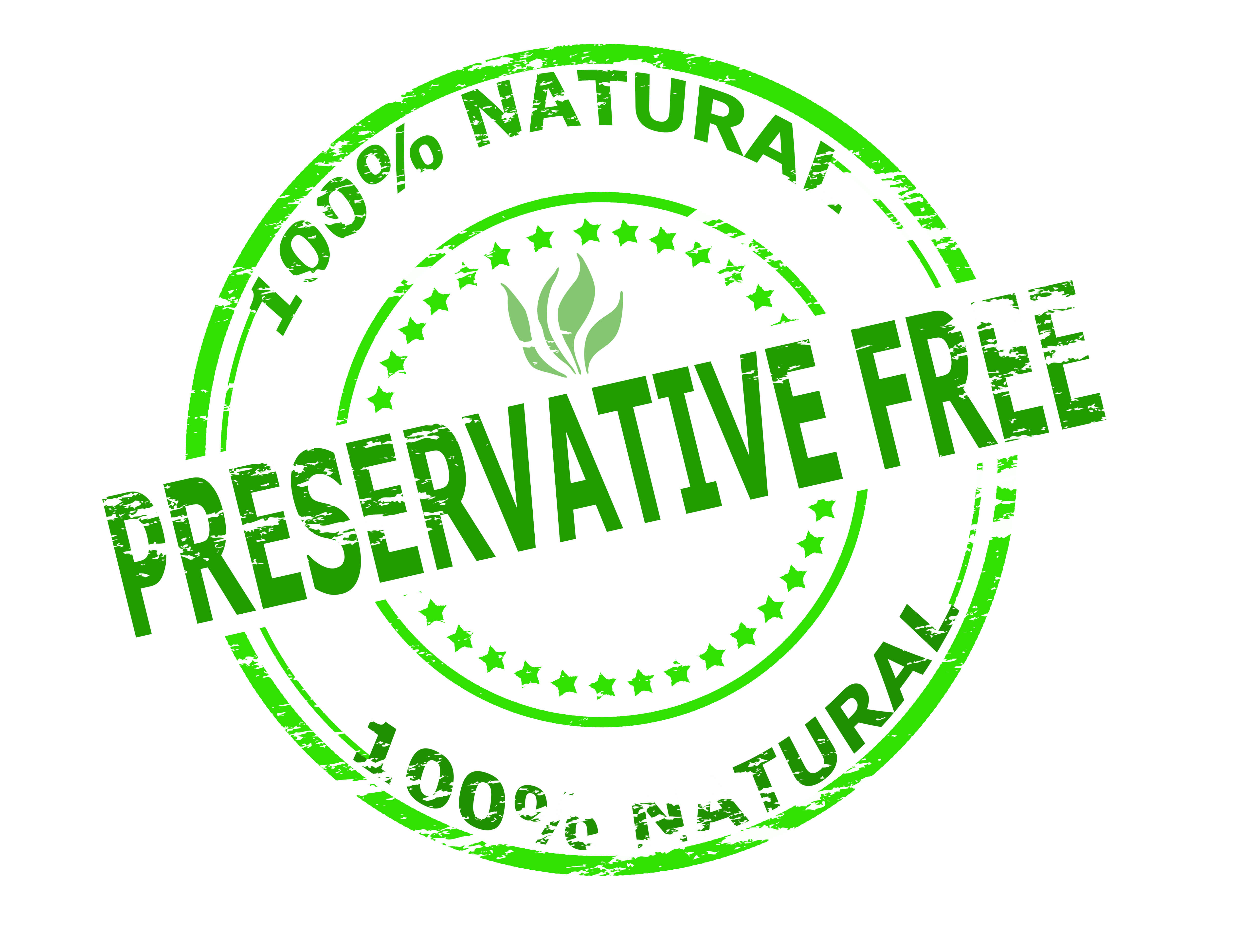Are Parabens Really Bad for Your Skin?

If you do an online search for skin care ingredients that should be avoided, parabens are usually at the top of every list.
But what exactly are they, and are they really that bad for your skin?
Here is everything you need to know about parabens…
What Are Parabens?
Parabens are a chemical compound that have been used as a preservative throughout the last century.
When formulated into a product, parabens are able to prolong their shelf life while also killing off any bacteria that does happen to grow within the product.
Parabens aren’t just in cosmetics either…
This preservative can be found in everything from glue and oil to soft drinks and processed meats. In fact, around 90% of the products found in an average grocery store contain parabens.
What exactly is the paraben chemical compound derived from?
Well, the parabens used in cosmetics are created synthetically, with their main source being petrochemicals.
However, parabens can be found naturally too…
They occur in certain foods, although in very small amounts.
These foods include:
- Currants
- Vanilla
- Barley
- Processed foods
However, there is a huge difference to parabens that have been consumed compared to those that have been applied topically on the skin…
When consumed, the parabens are metabolized, which breaks them up and prevents them from having much of an effect. When applied topically, the parabens are absorbed into the skin, and then into the blood stream, in their whole form.

What Exactly is the Problem with Parabens?
The problem with parabens wasn’t discovered until the 1990’s…
It was then that research began emerging that pointed at the way in which parabens mimicked the hormone estrogen in the body.
It has long since been known that exposure to estrogen is linked to the development and progression of breast cancer. The hormone causes an increase in breast cell division, leading to the growth of tumors.
In fact, some of the most common drugs prescribed to help combat breast cancer are designed to interfere with the body’s estrogen receptors.
You might be thinking…
But parabens only mimic estrogen, they aren’t actually the same hormone.
This is true, and the direct connection between parabens and breast cancer hasn’t actually yet been proven.
However, it only makes sense that long term exposure to a substance that mimics estrogen in the body, meaning that it has the same effect, could lead to breast cancer.
Plus, the fact that 99% of breast cancer tissues have been found to contain parabens doesn’t bode well for the chemical either.
It was this discovery in 2004 that led to the European Union banning five parabens from being used in cosmetics.
Yes, that’s right, there’s more than one paraben out there. This will be explained in more detail further down.
If all of this wasn’t enough to take in, parabens have also been linked to:
- Infertility and other reproductive disorders
- Learning problems
- Problems with fetal development
- Oxidative DNA damage, especially in pregnant women
- Increased skin aging
Are There Health and Safety Measures Regulating Parabens?
You would think that with so much controversy surrounding parabens, there are plenty of health and safety measures in place when it comes to their use, right?
Well, as mentioned above, the EU has restricted certain parabens from being used in cosmetics.
Other countries, including the USA and Canada, deem the ingredient safe when used in small amounts. For this reason, there are very few restrictions on the use of parabens in cosmetics.
Is it true that parabens are safe at small concentrations?
Possibly. It is true that parabens are usually used in very small amounts in cosmetics, usually at a concentration of between 0.4% to 0.8%.
If this was all you were being exposed to each day, then the parabens would likely not have any impact on your life whatsoever.
However, the problem lies with the sheer amount of parabens your body comes into contact with on a daily basis…
Research shows that the average person is exposed to 76mg of parabens each day.
This is believed to come from:
- Personal care products, including cosmetics, make up for around 50mg
- Pharmaceutical products make up for around 25mg
- The food you eat, which makes up for around 1mg
As you can see, paraben exposure quickly adds up…
Should You Be Worried About Parabens?
While some may say that there is nothing to be concerned about, the strong correlation between parabens and breast cancer is definitely worrying. The other health issues that parabens have been linked to are nothing to shrug off either.
While none of this has been concretely proven, it also hasn’t been proven that parabens are actually safe.
Although parabens are only used in small amounts in cosmetic products, this quickly builds up, making it worth avoiding them whenever possible.
For those of you concerned about the environment, this is another reason why you may want to avoid products containing parabens…
Recent studies have found parabens to be present in the tissues of marine animals, such as polar bears, dolphins and sea otters.
How?
Because all of the products that humans use that contain parabens end up washed away down the sewage system, where they are then released into the greater environment. Just about every marine mammal studied so far has been shown to have parabens present in their bodies. Although the ways in which this will affect their health is still unknown, it is definitely not good news.
Thankfully, with all of the paraben-free products now out there, avoiding parabens should be easy, right?
How to Avoid Parabens

As mentioned above, many products are now labelled as being paraben-free.
However, many aren’t…
This means that you need to check the ingredients list to see if a product actually contains any parabens.
Is it as simple as looking out for the term paraben?
Unfortunately not. There are a few different types of parabens out there, so you will need to look out for the following:
- Propylparaben
- Methylparaben
- Ethylparaben
- Isobutylparaben
- Benzylparaben
- Butylparaben
This may seem confusing, but there’s an easy trick to this…
When used as a preservative, just about every form of paraben will have the word paraben in its name, usually at the end. The one exception is usually Alkyl parahydroxy benzoates, which is also a paraben.
However, parabens are used as more than just a preservative…
They are also used as a fragrance ingredient.
Won’t this be listed on the ingredients list?
No, because companies are not required to list each and every chemical used for the purpose of a fragrance.
Why not?
Because fragrances are considered to be trade recipes, meaning that the exact ingredients used can be kept under wraps.
The term fragrance can refer to a collection of hundreds of different chemicals, and parabens are often one of them.
This is why products with a fragrance can often cause irritations for those who have sensitive skin, as there are so many different ingredients within them.
In order to make sure that a product you are using doesn’t contain any parabens, you will need to check that it is fragrance-free too. This doesn’t mean that it won’t smell nice, as many products take on a beautiful scent from other ingredients used, such as lavender or vanilla.
Don’t Forget About Other Personal Care Products
As mentioned earlier, there are so many products out there that contain parabens.
However, deodorants tend to be the most worrying…
These are applied directly underneath the arms, increasing the amount of paraben exposure your breast tissue experiences.
Body lotions that you apply to your upper body could be a problem too.
When checking your skin care products for parabens, make sure that you extend this search to the rest of your personal care products too.
Avoiding Parabens in Your Food
In addition to making sure that your personal care products don’t contain any parabens, you should also try to ensure that your diet is as paraben-free as possible.
Although your body metabolizes the parabens you eat when it comes to whole foods, such as currants, parabens that have been used in processed foods can be problematic.
Some of the most common foods that contain parabens are:
- Flavoring syrups and sauces
- Jams and pickles
- Beer and soft drinks
- Processed fish
- Frozen dairy products
- Processed vegetables
- Desserts
When used in foods, parabens are referred to by an E-number, rather than with the term paraben.
Some of the most common paraben E-numbers to look out for include:
- E214 – ethylparaben
- E218 – methylparaben
- E209 – heptylparaben
- E216 – propylparaben
Other Preservatives to Avoid
While you may have managed to cut parabens out of your daily skin care routine, there are still several other preservatives out there that can also be quite harmful.
Here are a few others to keep an eye out for:
- Butylated Hydroxyanisole (BHA) and Butylated Hydroxytoluene (BHT) – both of these are antioxidant preservatives, with BHA believed to be a likely carcinogen. While BHT is not, it has been linked to kidney and liver damage
- Formaldehyde and Ingredients that Release Formaldehyde – it is common knowledge that formaldehyde is a carcinogen, but the ingredient can still be found in so many cosmetics. Many other preservatives also release formaldehyde into products, meaning that they need to be avoided too. These include Diazolidinyl Urea, Methenamine, DMDM Hydantoin, Imidazolidinyl Urea and Sodium Hydroxymethylglycinate
- Triclosan – contains antifungal and antibacterial properties, but has been shown to cause reproductive problems and thyroid issues. This ingredient is now being increasingly banned
- Phenoxyethanol – causes damage to the central nervous system and the brain, especially when it accumulates in the body
- Bad Alcohols – some alcohols are beneficial in cosmetics, but others are bad. They strip away the skin’s natural protective barrier, leading to a number of different skin problems. Bad alcohols include isopropyl alcohol, benzyl alcohol, methanol, sd alcohol or denatured alcohol and propanol
How about products that are completely preservative-free?

This may sound great in theory, but there are problems that come with this too…
Preservatives are there for a reason. Without them, your products would quickly become an active breeding ground for bacteria and fungi, and these would definitely cause some serious issues, not only to your skin but also your general health.
However, if you know that you would be able to use a product up in a month or so, and are also able to store it in the refrigerator, then preservative-free products could be quite beneficial.
Anhydrous Skin Care Products
Although many brands are now dedicating more time and money to developing alternatives to parabens, others are turning to anhydrous formulas instead.
What is an anhydrous skin care product?
It is one that doesn’t contain any water.
Since water is what causes the growth of bacteria, a formula that doesn’t contain any water will not need much when it comes to preservatives.
Anhydrous skin care products have a few other benefits too, such as:
- They penetrate into the skin’s layers more effectively, and so do all of the ingredients within the product
- They are more stable
- They don’t dry out the skin by evaporating
- Some of the best ingredients out there are oil-soluble rather than water-soluble
- They tend to be more concentrated, meaning that a little goes a long way
- They are more sustainable and environmentally-friendly, especially as water shortages become more common
Anhydrous skin care products are becoming quite the trend, so you can expect to see plenty more variety available soon.
When it comes down to it, parabens are an ingredient that you definitely want to avoid as much as possible. While this may have been difficult a few years ago, there are now so many alternatives available, making it easy to completely cut parabens out of your skin care routine.

